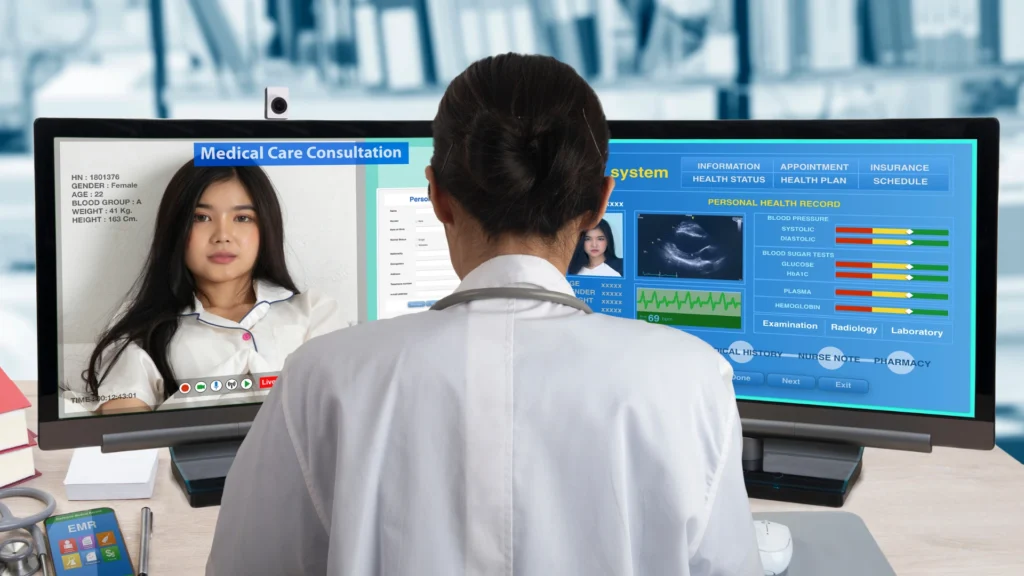
With everything just a tap away these days, it’s easy to get health advice online—maybe too easy. Whether it’s through social media, WhatsApp groups, or anonymous forums, Malaysians are increasingly turning to the internet for quick solutions. But not all advice is safe, and not all sources are real doctors. The growing presence of unlicensed doctors in Malaysia is becoming a real concern, putting patient safety and trust at risk.
It may start with something that looks harmless: a live video by a “health coach” claiming to cure chronic illness with herbs, or an online store promising miracle treatments without side effects. But behind the smooth sales pitch is often someone with no medical training, no legal backing—and sometimes, no accountability.
Why This Trend Is So Dangerous
When you’re unwell, scared, or desperate for answers, it’s tempting to believe anyone who offers quick relief. That’s why healthcare scams are so effective. They prey on people’s fear, urgency, and lack of access to legitimate care.
The real problem? Taking advice from someone who isn’t qualified can delay proper treatment or cause more harm. There have been cases where patients ignored serious symptoms after being reassured by so-called “experts” online. Some even ended up in hospital after taking unregulated supplements or following unsafe remedies.
This isn’t just about bad advice—it’s about the online consultation risks that come with trusting the wrong people. Without regulation, anyone can set up a social media page and pretend to be a health expert. And if something goes wrong, there’s little legal protection for the patient.
How to Spot Red Flags
Protecting yourself starts with knowing what to look out for. Here are some warning signs that you might be dealing with a healthcare scam:
- The person refuses to share official medical credentials
- They promise “instant cures” or say doctors don’t want you to know about their methods
- They pressure you into buying products or booking sessions
- There’s no verifiable clinic, license, or traceable record
- All consultations happen over unofficial channels like personal DMs or WhatsApp
In medical legality in Malaysia, only licensed practitioners registered with the Malaysian Medical Council (MMC) are allowed to diagnose and treat patients. This rule protects the public—but only if we know how to check and insist on it.
What Makes a Telehealth Platform Legit?
Not all online healthcare is risky. In fact, trusted telehealth platforms are part of the solution. They provide a secure, legal, and regulated space for Malaysians to access real medical professionals—without the guesswork.
A legitimate platform will always:
- Require doctors to be licensed and verified by MMC
- Use encrypted systems to protect patient data
- Offer clear documentation of your consultation and diagnosis
- Display terms of service, privacy policies, and contactable support channels
If a platform doesn’t do these things, be cautious. Your health is not something to gamble on.

Where FEV3R Fits In
This is exactly where FEV3R stands out. Built with Malaysians in mind, FEV3R is a digital healthcare subscription app that connects you with real, certified doctors and healthcare providers. Every medical professional on FEV3R is vetted, qualified, and registered under Malaysian medical regulations.
With FEV3R, you don’t have to second-guess whether you’re talking to a real doctor. From general medical advice to chronic illness management, the app provides trusted telehealth access on your phone—anytime, anywhere. Whether you’re at home, at work, or caring for your family, FEV3R helps you make safe, informed health decisions.
More importantly, FEV3R doesn’t promote miracle cures or unverified treatments. The focus is on evidence-based care, patient education, and medical legality in Malaysia. So instead of falling for flashy advice online, you’re getting real help from people you can trust.
The Role of Public Awareness
Fixing this issue isn’t just about cracking down on fake doctors—it’s also about raising awareness among patients. We need to normalise asking questions like:
- “Are you a licensed doctor?”
- “Where are you registered?”
- “Can I verify your credentials?”
At the same time, public health campaigns should encourage Malaysians to use trusted telehealth options and understand the dangers of online consultation risks. Education is one of the best tools we have to reduce the spread of misinformation and protect vulnerable groups from healthcare scams.
What You Can Do to Stay Safe
Here are a few simple steps to avoid becoming a victim:
- Verify before you consult – Use official apps or clinics, and check the doctor’s MMC registration.
- Be skeptical of miracle cures – If it sounds too good to be true, it probably is.
- Use secure platforms – Apps like FEV3R prioritise your safety and confidentiality.
- Report suspicious accounts – Help stop the spread of misinformation by reporting unverified pages.
Educate your loved ones – Many scams target older people or those less familiar with tech. Share what you know.
Your Health Deserves Real Care
The internet has made healthcare more accessible—but also more confusing. While we can now get medical advice without stepping out of the house, we also face a flood of unsafe and illegal alternatives.
Don’t let yourself or your loved ones fall into the trap of unlicensed doctors in Malaysia. Know the risks, trust your gut, and always choose platforms that prioritise safety, legality, and real expertise.
FEV3R offers more than just convenience—it offers confidence. When it comes to your health, you deserve care that’s not only easy but also credible and regulated. Choose wisely, and take control of your health journey the right way.
.
Contact Us






